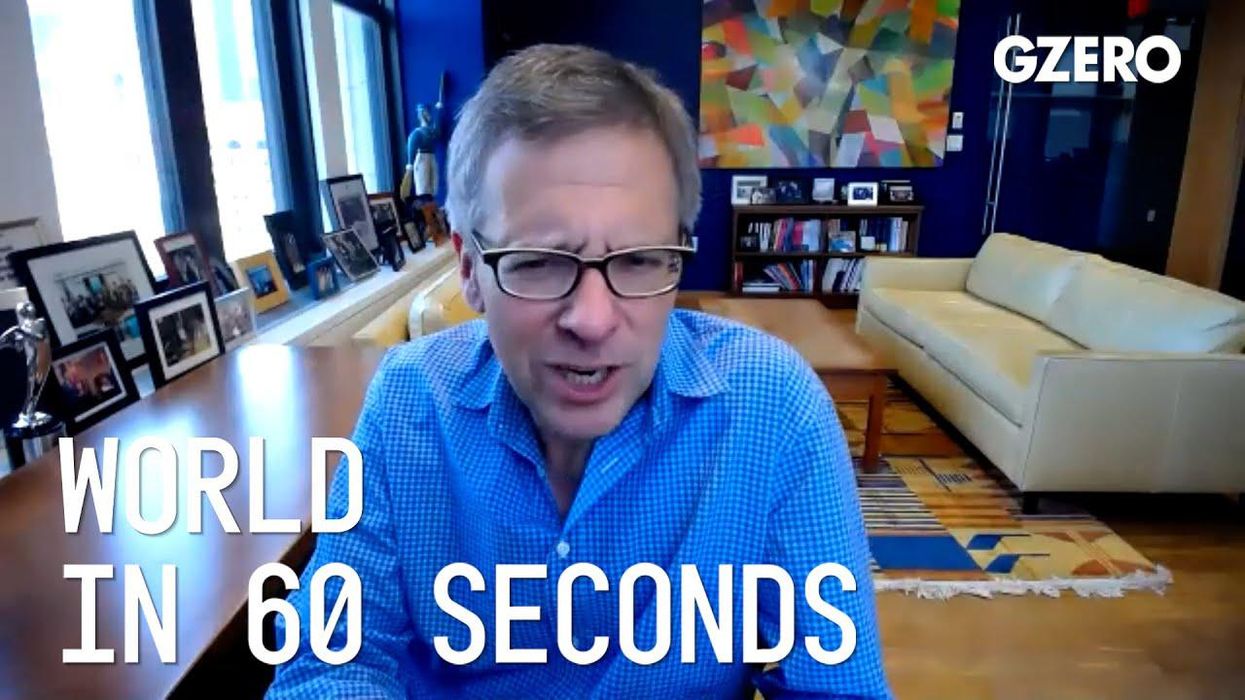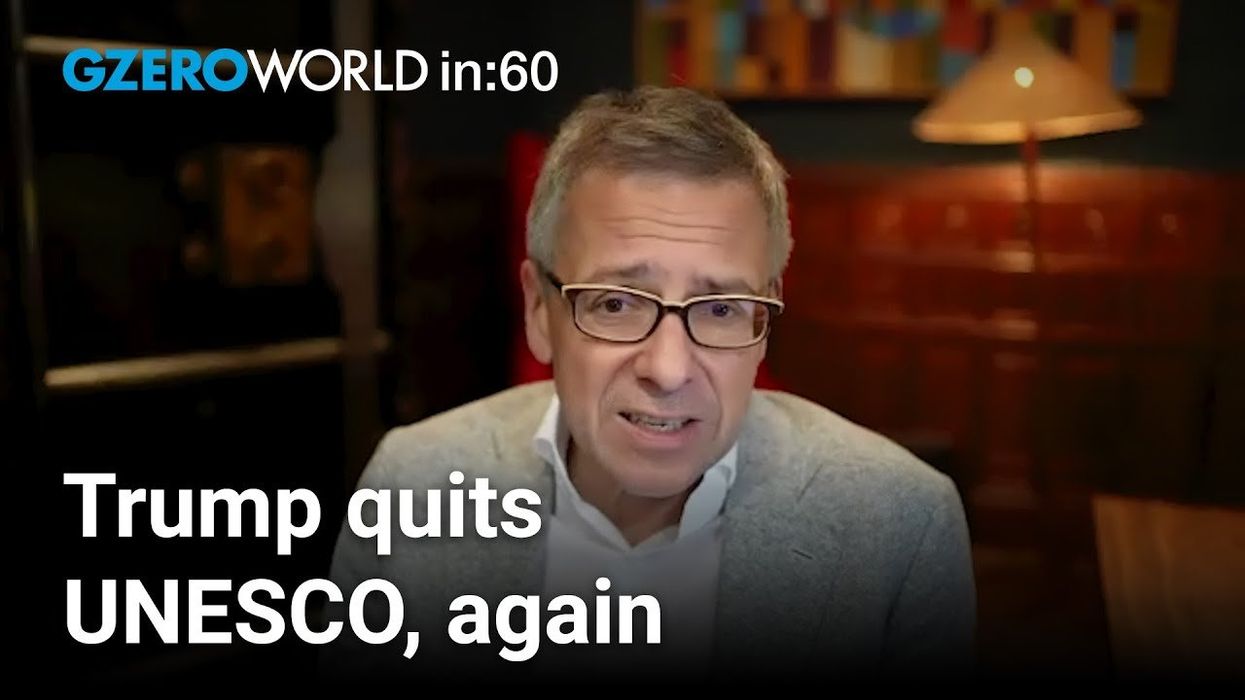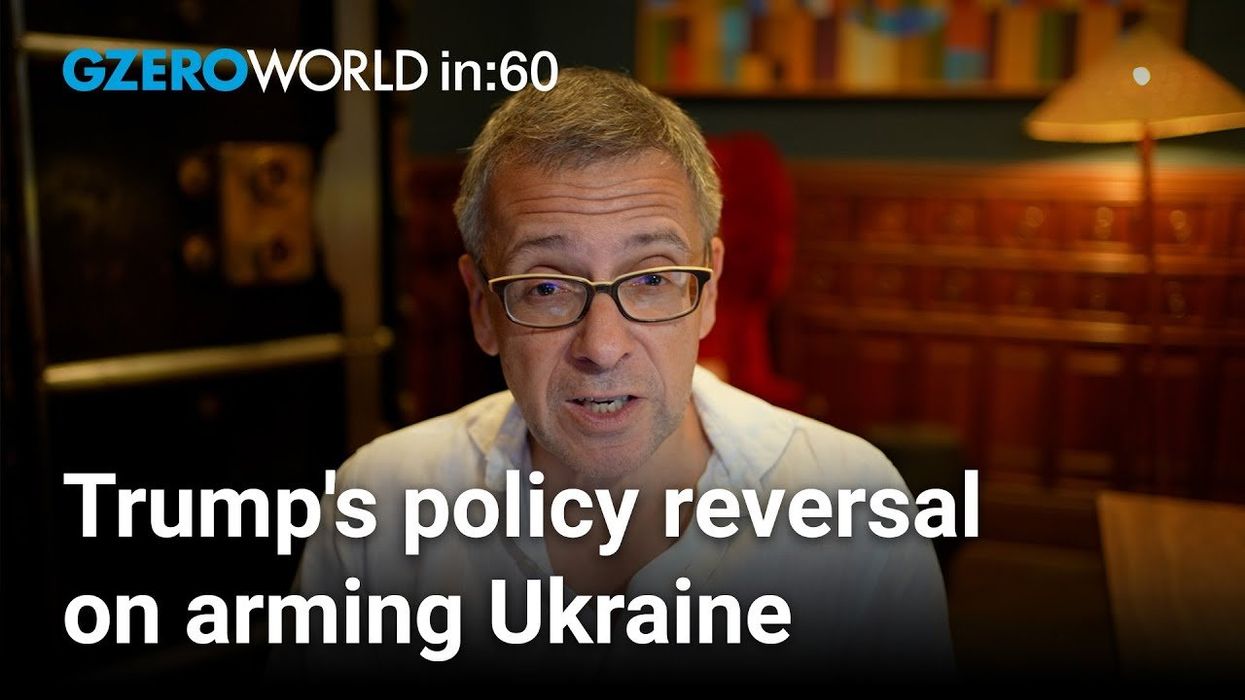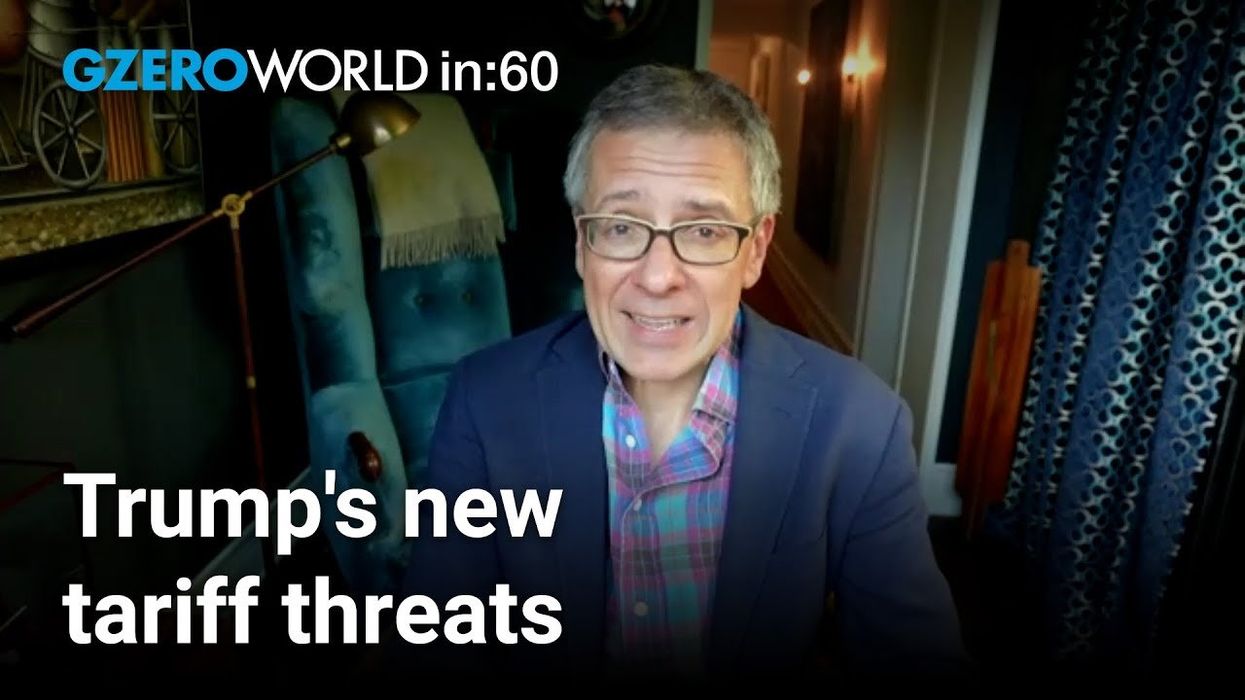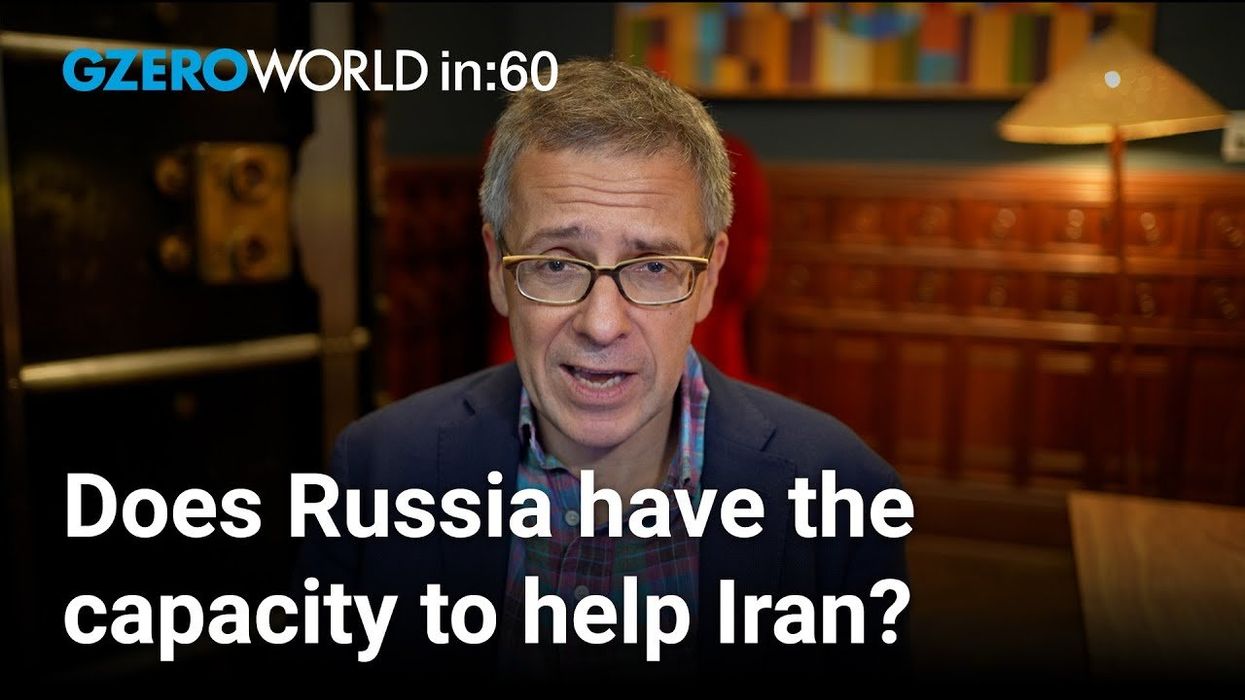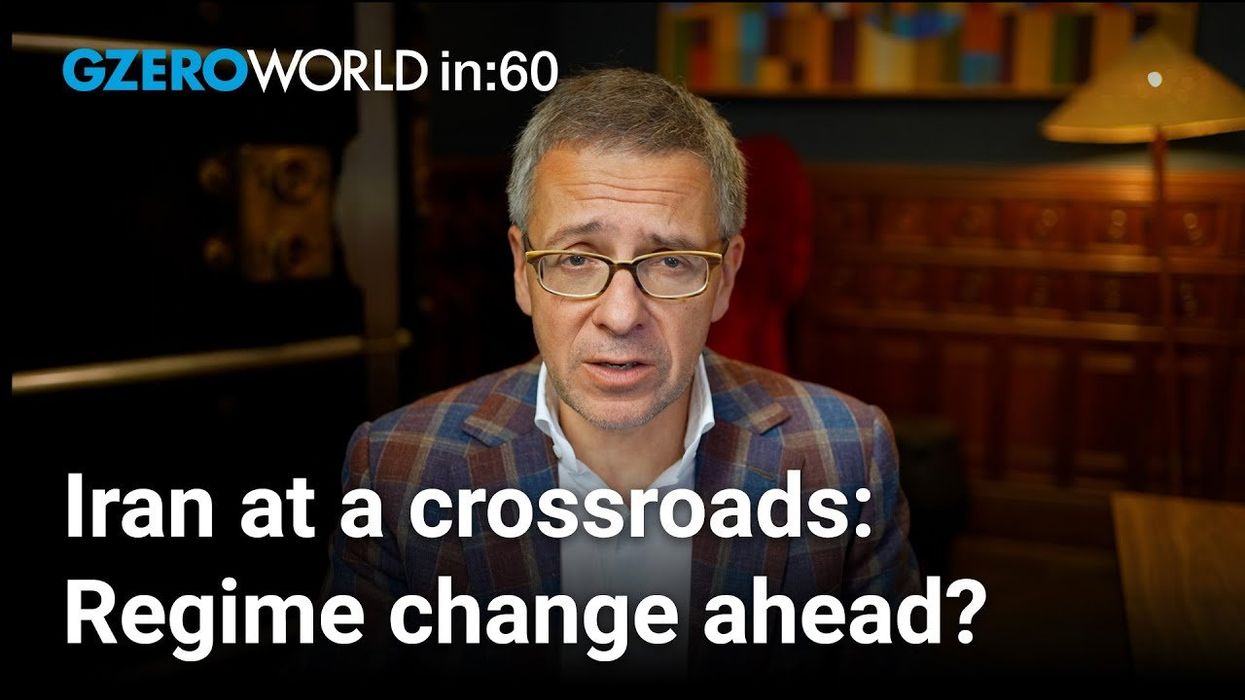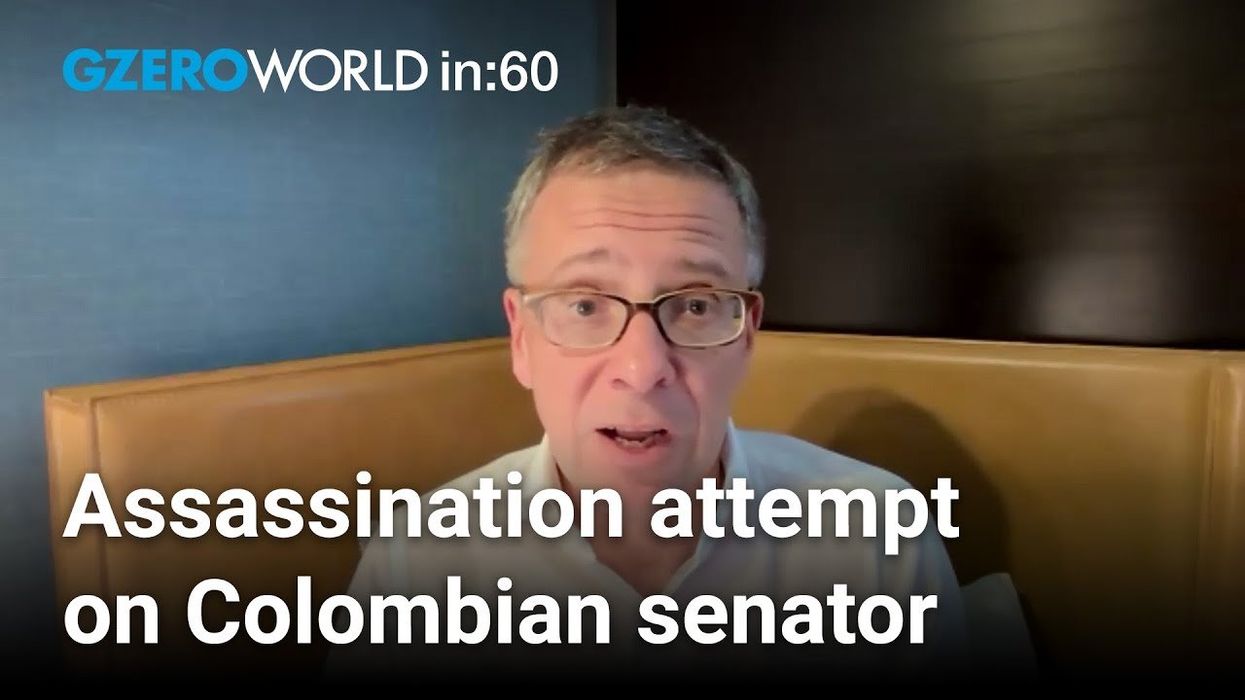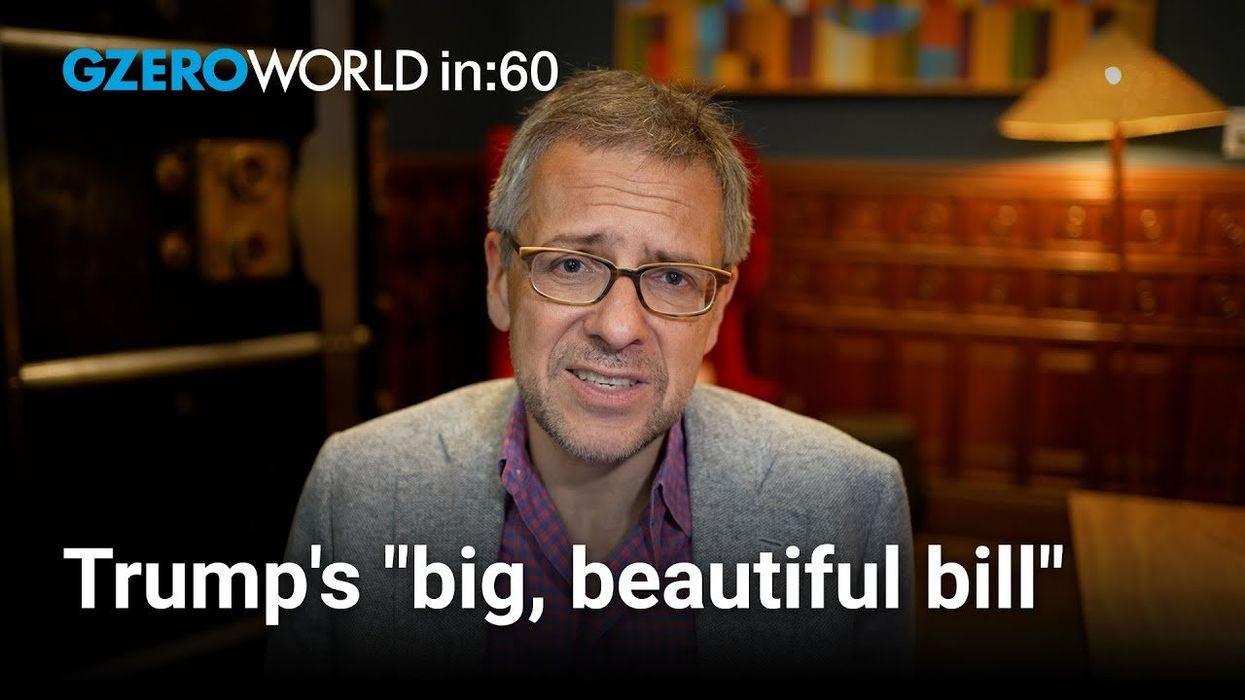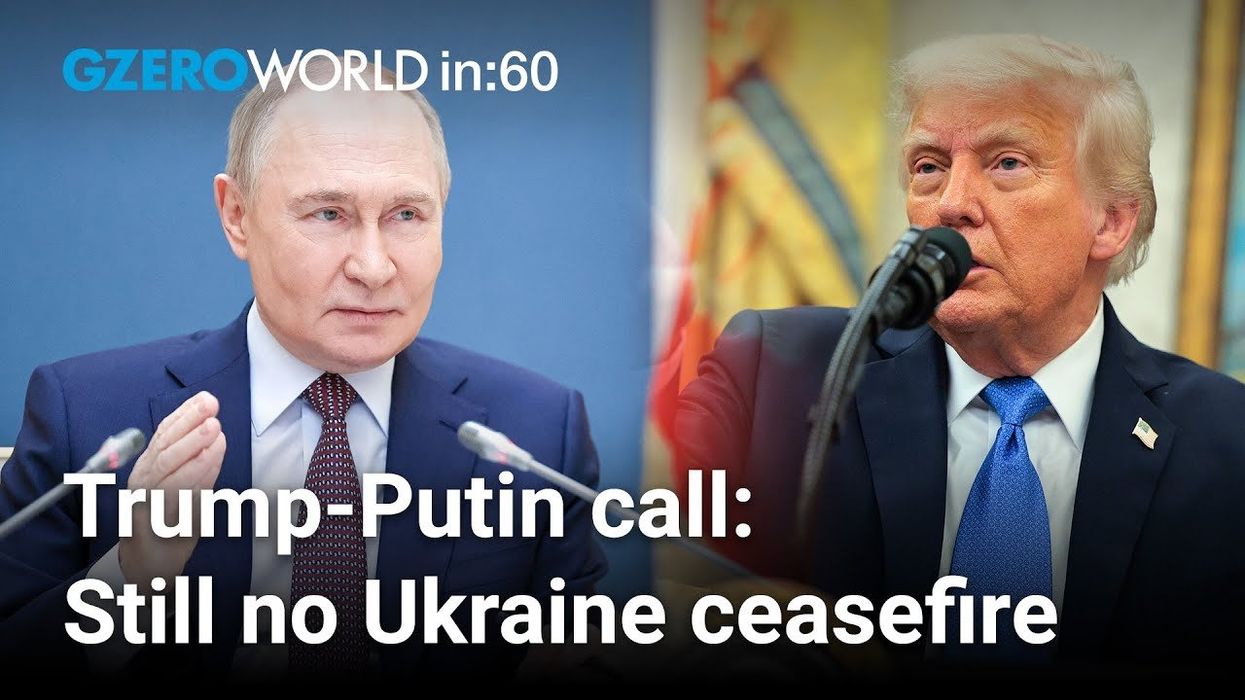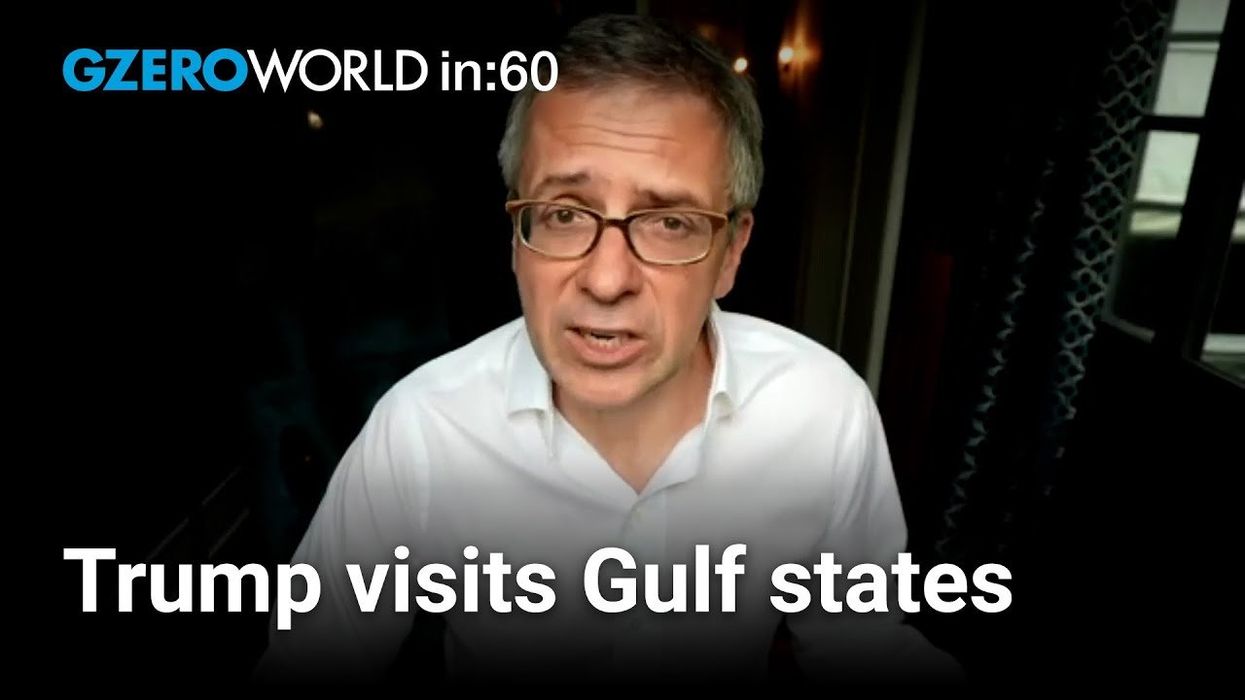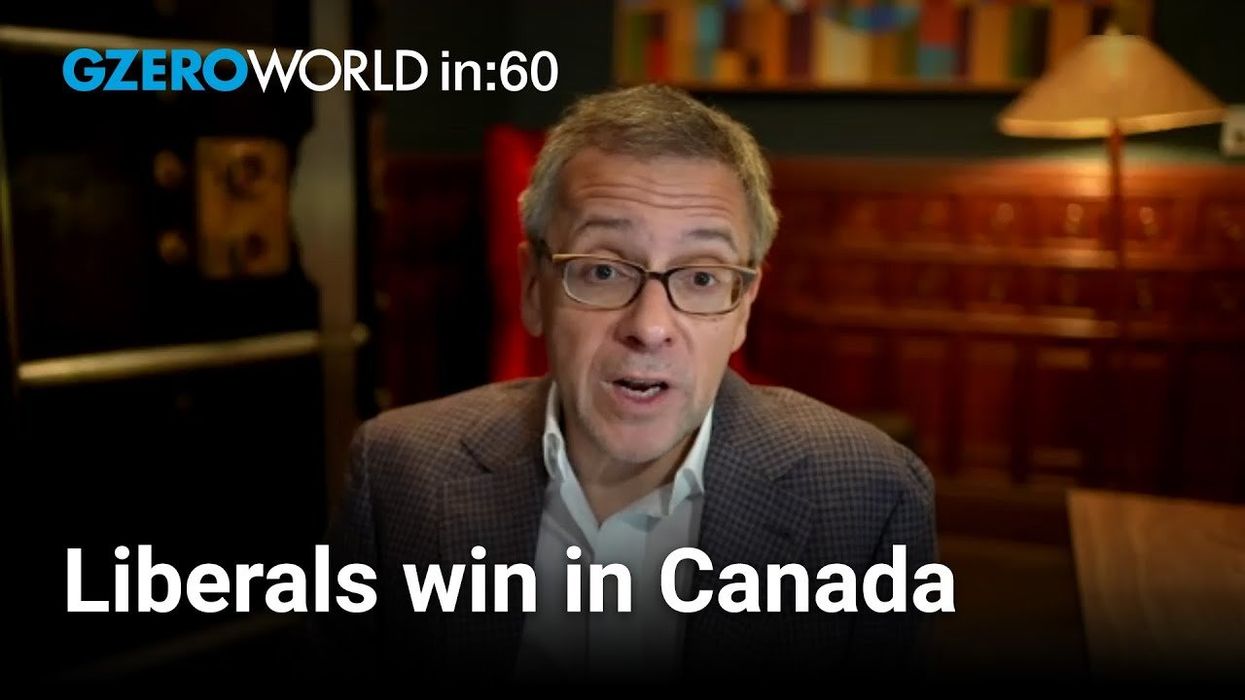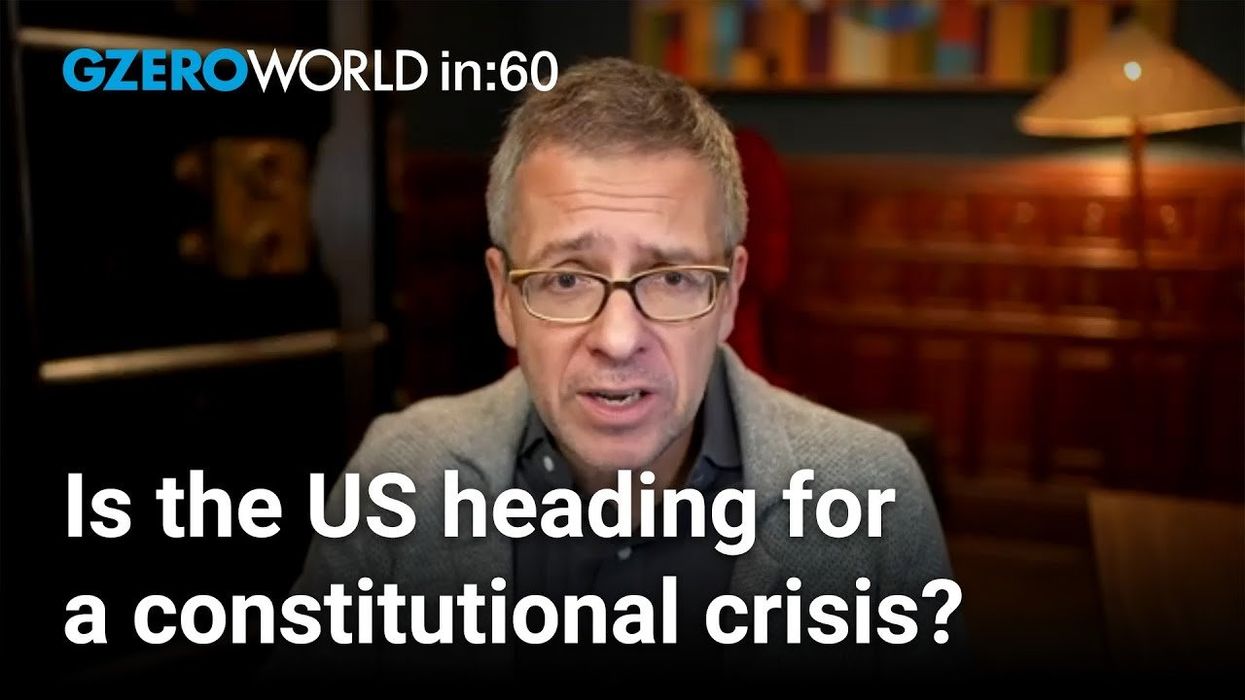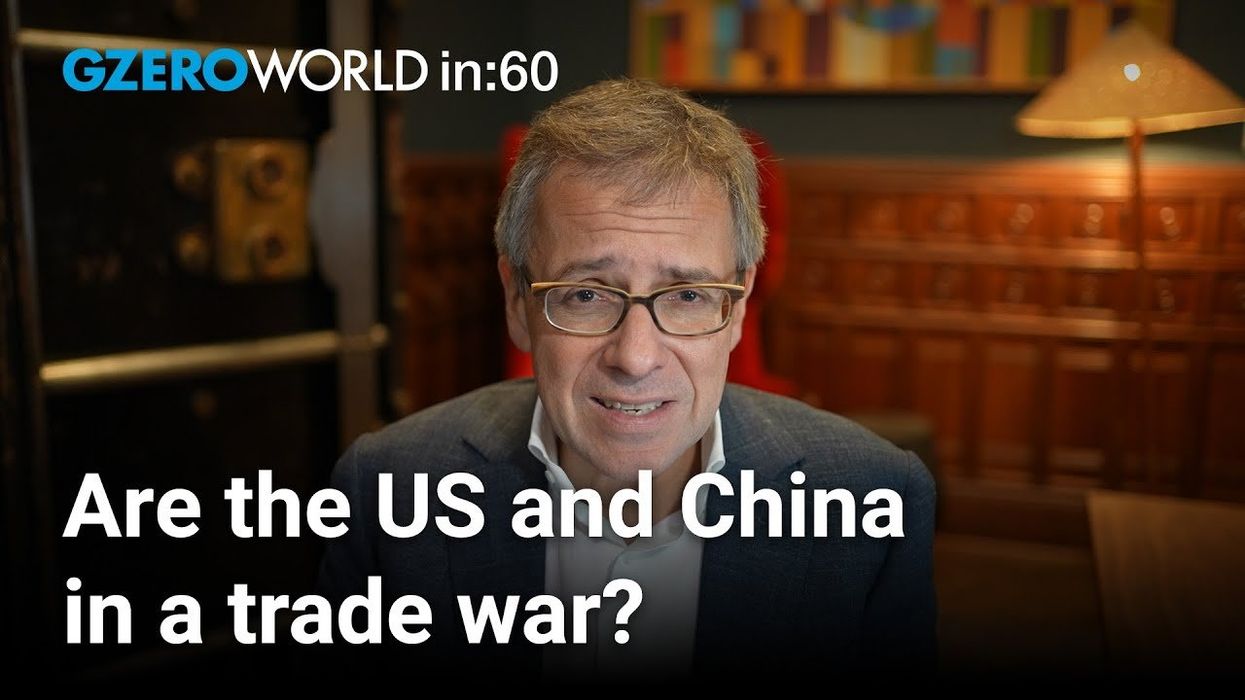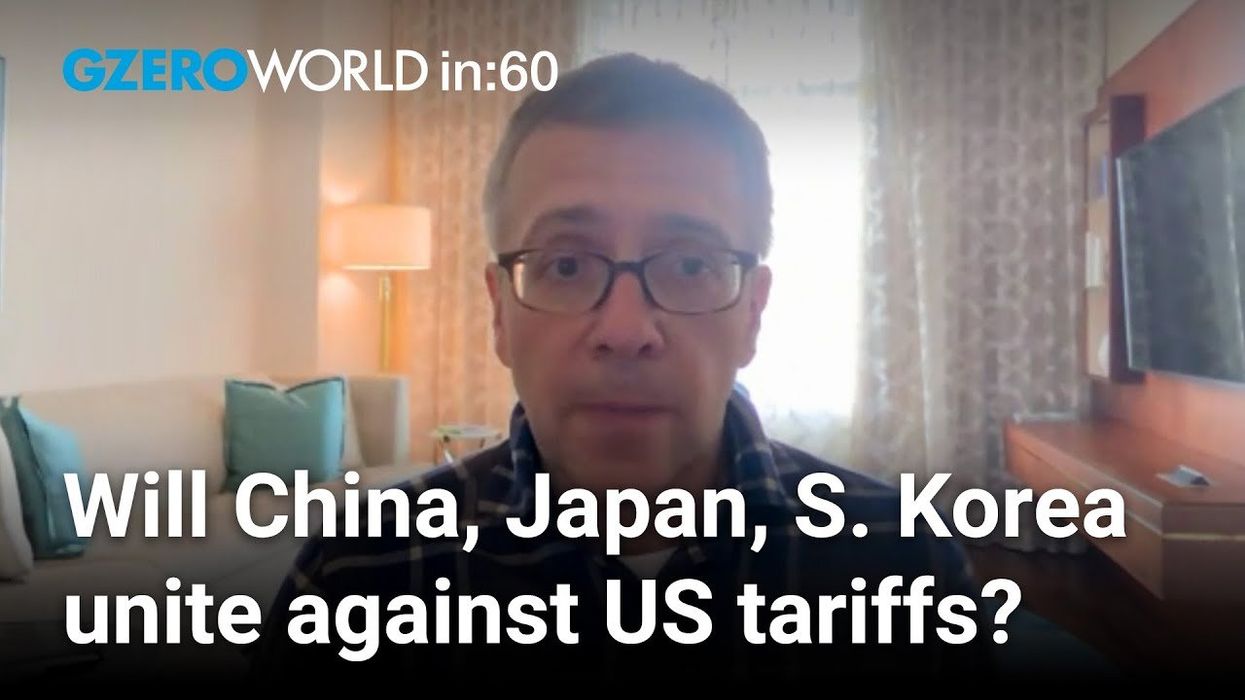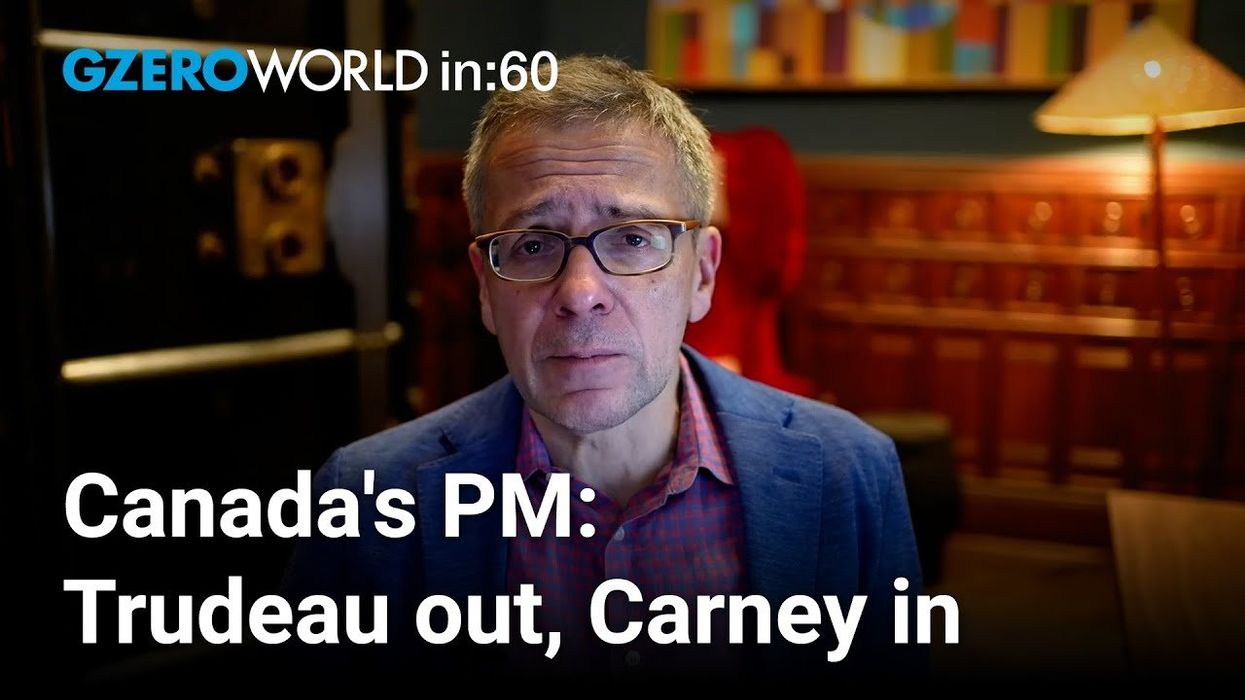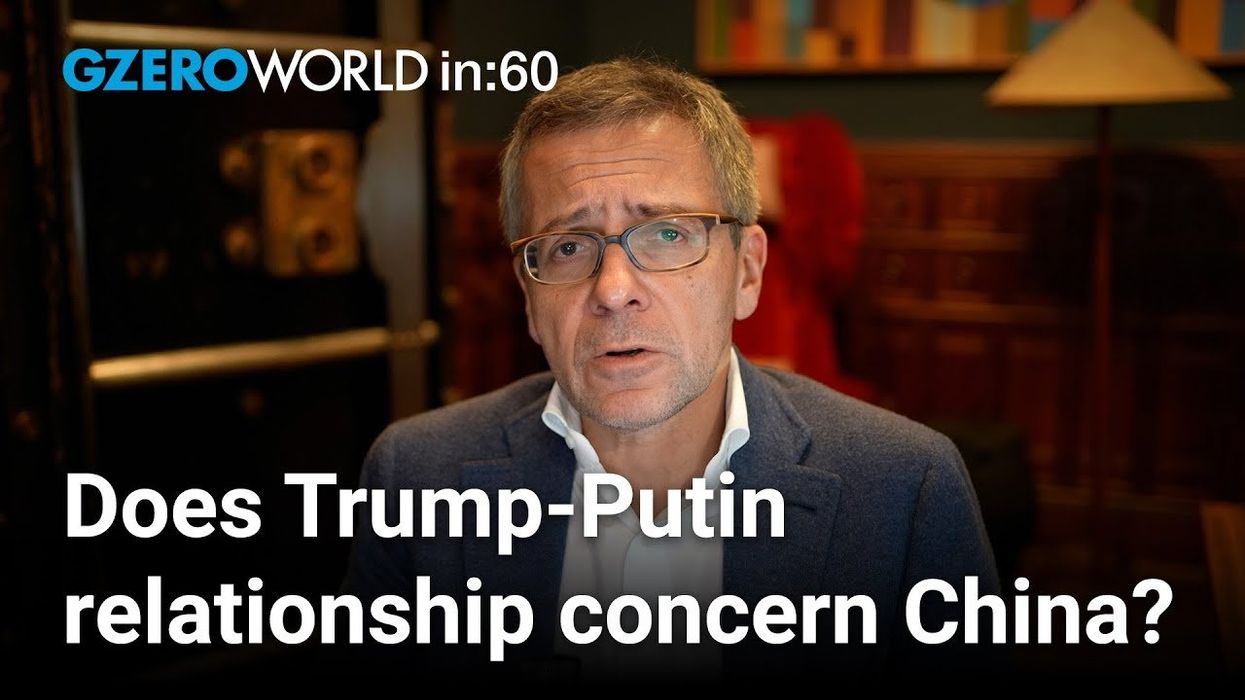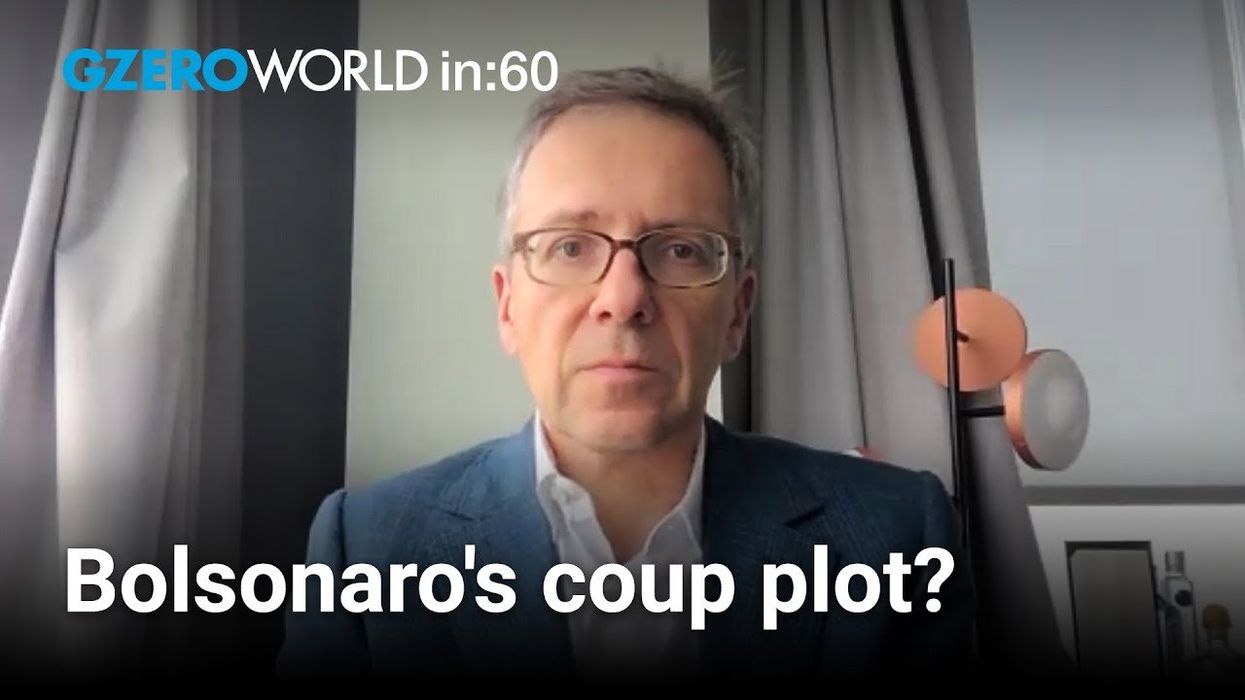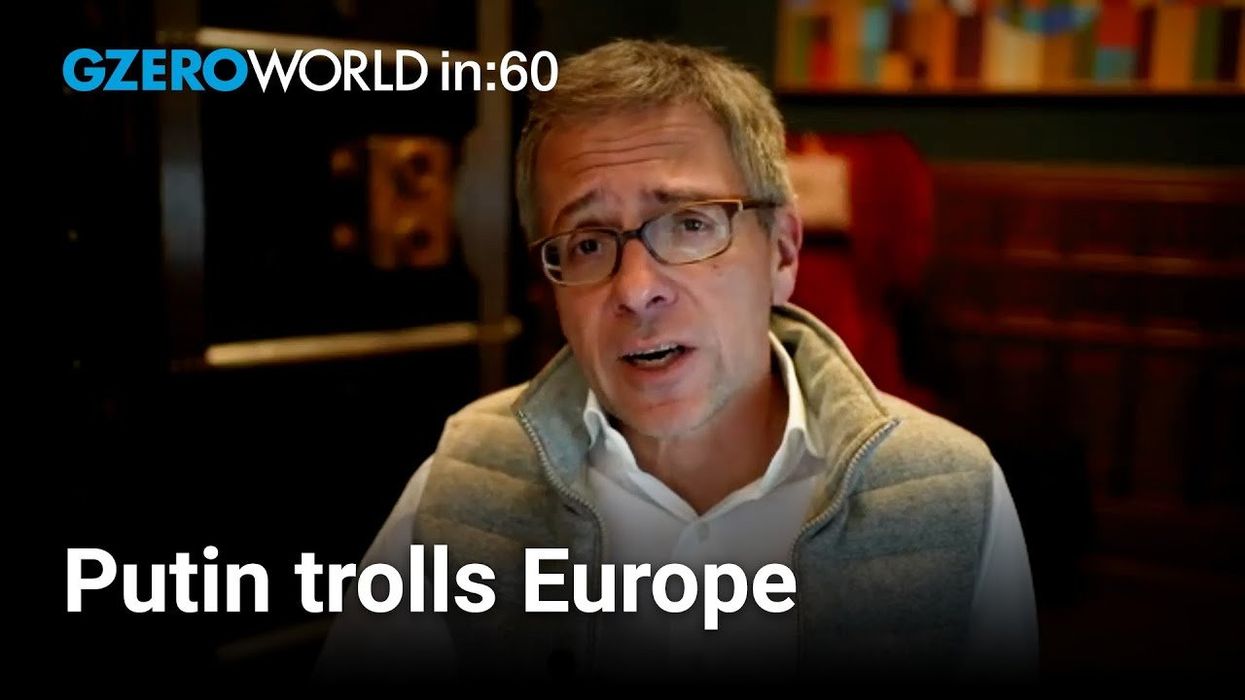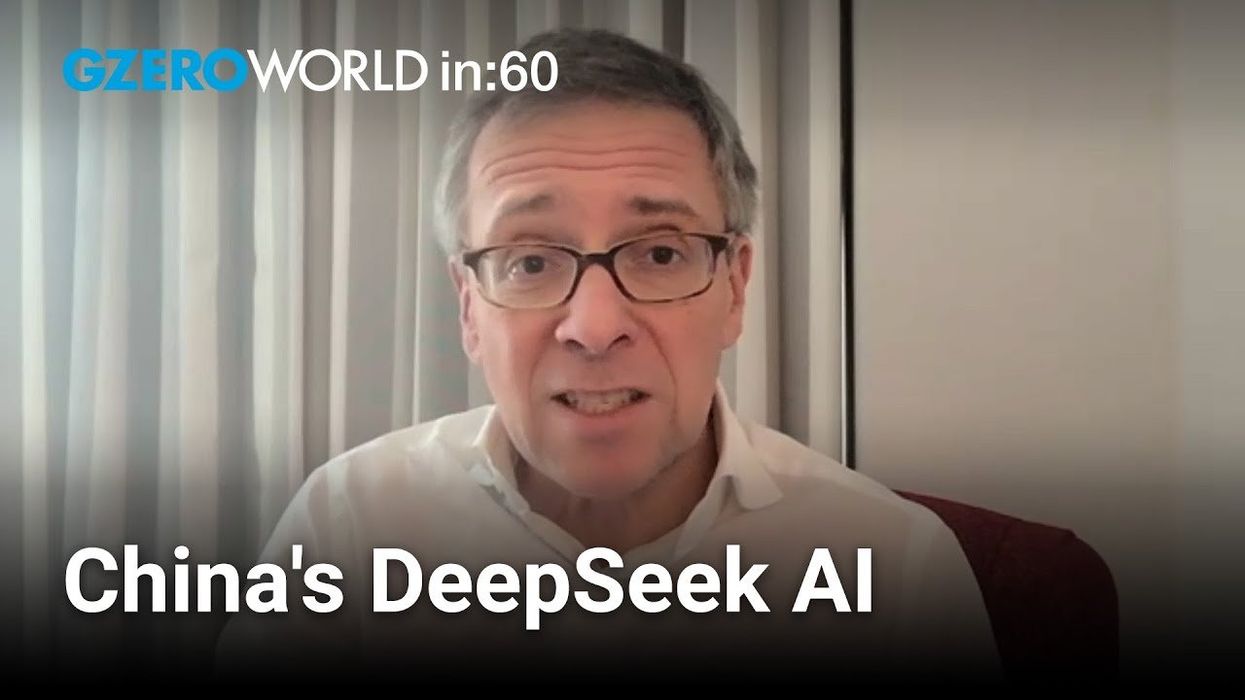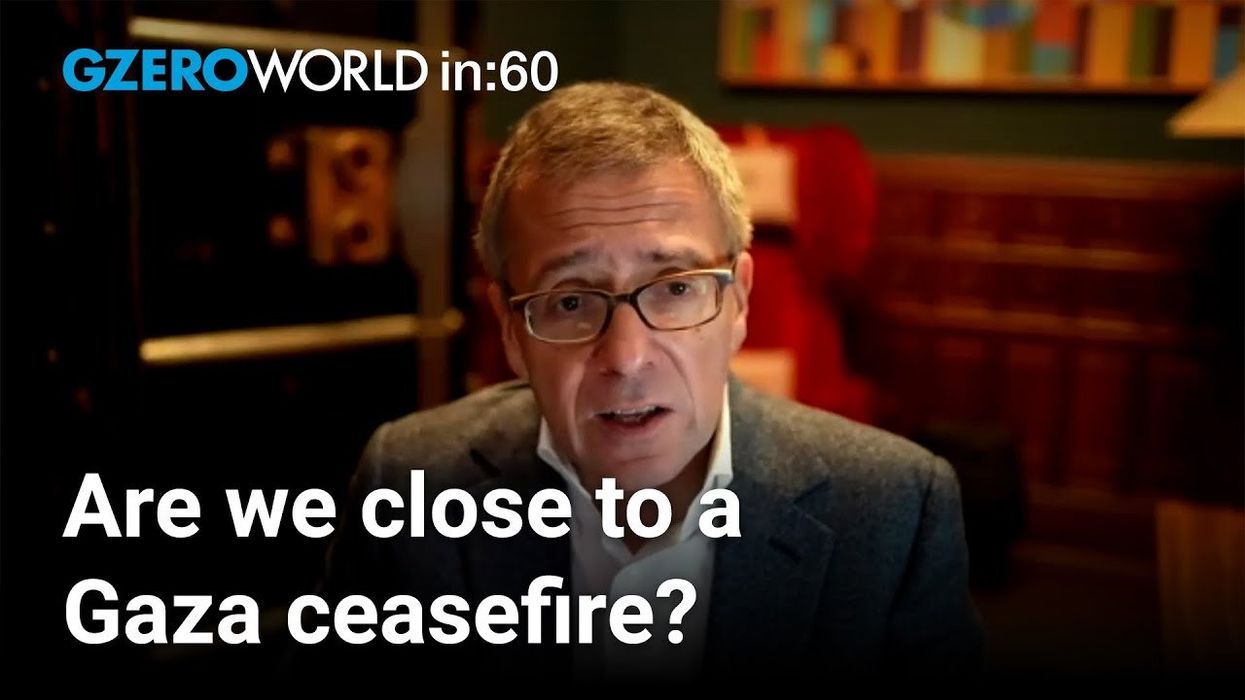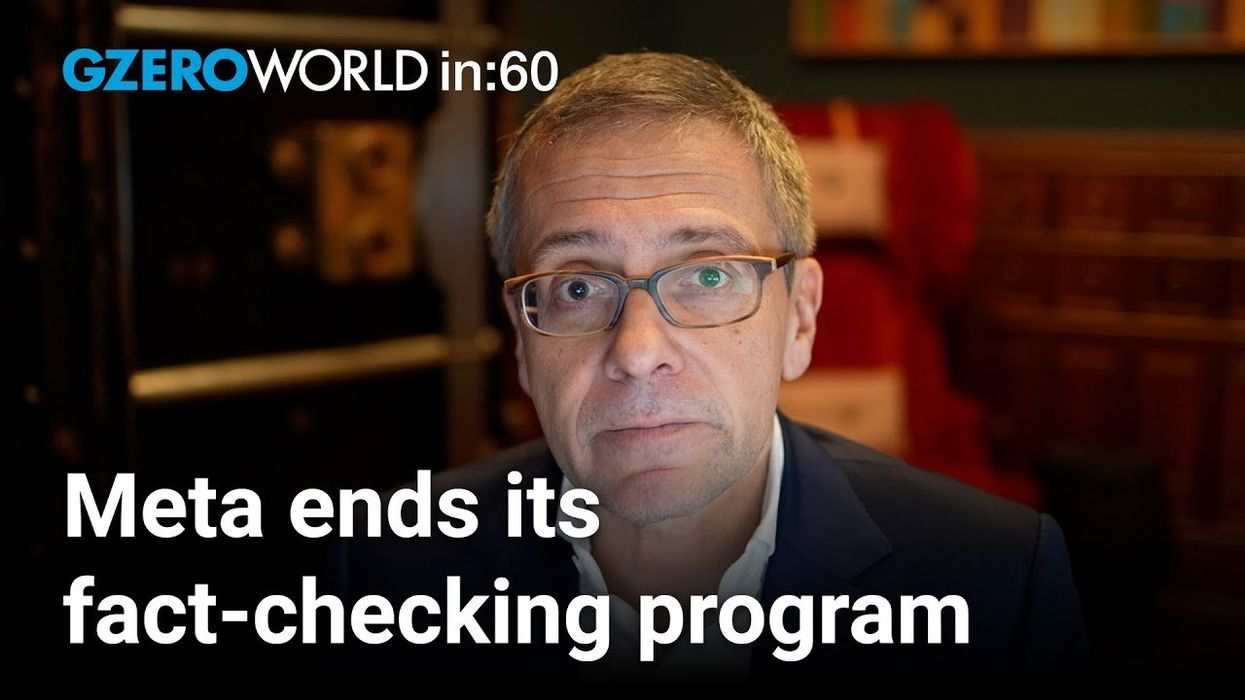VIDEOSGZERO World with Ian BremmerQuick TakePUPPET REGIMEIan ExplainsGZERO ReportsAsk IanGlobal Stage
Site Navigation
Search
Human content,
AI powered search.
Latest Stories
Start your day right!
Get latest updates and insights delivered to your inbox.
Ian Bremmer shares his perspective on global politics on World In 60 Seconds (aka Around the World in 180 Seconds) :
Biden says he expects significant de-escalation between Israel and Hamas. Will the conflict end soon?
He wouldn't say that if he hadn't already been told that by Bibi Netanyahu, the Israeli prime minister, as well as the fact that Israeli Defense Forces have already been saying that they've engaged in significant deterioration of Hamas's military and leadership capabilities. That means that within days you likely get a ceasefire. It's going to be back and forth. The Israelis saying Hamas have to go first. And even when you get a ceasefire agree, then you get more violence, and you get an outbreak. So it's a bit of a rolling back and forth as opposed to suddenly there's just no more military engagement. But I would be really surprised if in another week we see this level of military conflict and of deaths on the ground, primarily in Gaza. In fact, I'd say really by the end of the weekend, I would think that this is going to calm down significantly. Biden wouldn't be saying that otherwise.
Does Putin have a role in the Israel-Palestine conflict?
Not a big one. I mean, certainly Putin has come out and been more assertive in opposing Israel, supporting the Palestinian cause, but there is also a lot of informal political engagement between the Kremlin and a lot of Jews that had emigrated from the former Soviet republics into Israel, particularly on the Israeli right. And that's a reasonably strong connection. Netanyahu has a pretty good line into the Kremlin and Putin himself, and that's not gone away. So I would say it's pragmatic, I wouldn't say it's a very significant relationship.
Has India lost control of the pandemic?
Completely different question. I'm not sure they ever had control of the pandemic. They just didn't have as many cases. And now they have no idea how many cases they have. You've seen 4,500 deaths in the last 24 hours, that they know about, in reality it's probably two to five times greater than that. It's the largest number of known deaths in any country since the pandemic began over a year ago. And of course, with the exception of China, India's got the largest population in the world by a large margin. So the per capita deaths, aren't so large compared to some other countries around the world, but the impact for variants and spread is massive. And that is, of course, a danger. There are going to be a lot more variants by the end of the year, and India just has no capacity to really get a handle on that. The testing levels in India are de minimis, and it's not like they have control of all their borders. So all of that is pretty problematic, though not for the countries that are engaging in rollout of vaccines across the board like we are in the US, and increasingly in Europe.
China successfully landed a Rover on Mars. Another space race for the United States?
Well, I mean, China's investing a lot, but to the extent there's a space race, I'm not sure it's with NASA, as opposed to with Elon Musk and SpaceX. I mean, increasingly the private sector in the United States, they're the ones that are doing the most in terms of the future of space. Is that aligned with American national security? Not necessarily. We'll see where that goes. Certainly SpaceX, I mean, their biggest contracts are with the US government because they've got the ability to get payload up. And so the US is basically renting it from SpaceX. But increasingly Elon Musk is dominating lower earth orbit. That's pretty interesting. He's one guy. What happens if he changes citizenship? What if he leaves? And what's the US government going to do about regulating that? It's going to be an interesting question, but for now, I think I'd be more concerned about things like technology in the US as well as things like Taiwan, South China Sea, the Uighurs, a little bit less so about space.
Keep reading...Show less
More from ask ian
Trump pulls US out of UNESCO, again
July 22, 2025
Trump announces new plan to arm Ukraine
July 15, 2025
Are NATO allies aligned on Iran?
June 24, 2025
Will Iran’s regime survive?
June 18, 2025
Trump-Musk rift over Trump's "big, beautiful bill"
June 04, 2025
What is Trump after in his latest Gulf states tour?
May 13, 2025
Why Mark Carney’s victory won’t heal the US-Canada rift
April 29, 2025
Trump tariff is starting a US-China trade war
April 08, 2025
What if Japan & South Korea sided with China on US tariffs?
April 01, 2025
US travel warnings issued by its closest allies
March 25, 2025
US-Canada trade war helps Mark Carney's election prospects
March 11, 2025
Why Trump won’t break the Putin-Xi alliance
March 04, 2025
Will Trump & Musk punish Brazil over Bolsonaro indictment?
February 19, 2025
Putin trolls Europe about "the master" Trump
February 04, 2025
DeepSeek puts US-China relations on edge
January 30, 2025
Gaza ceasefire likely as Biden and Trump both push
January 14, 2025
Meta scraps fact-checking program: What next?
January 07, 2025
GZERO Series
GZERO Daily: our free newsletter about global politics
Keep up with what’s going on around the world - and why it matters.

